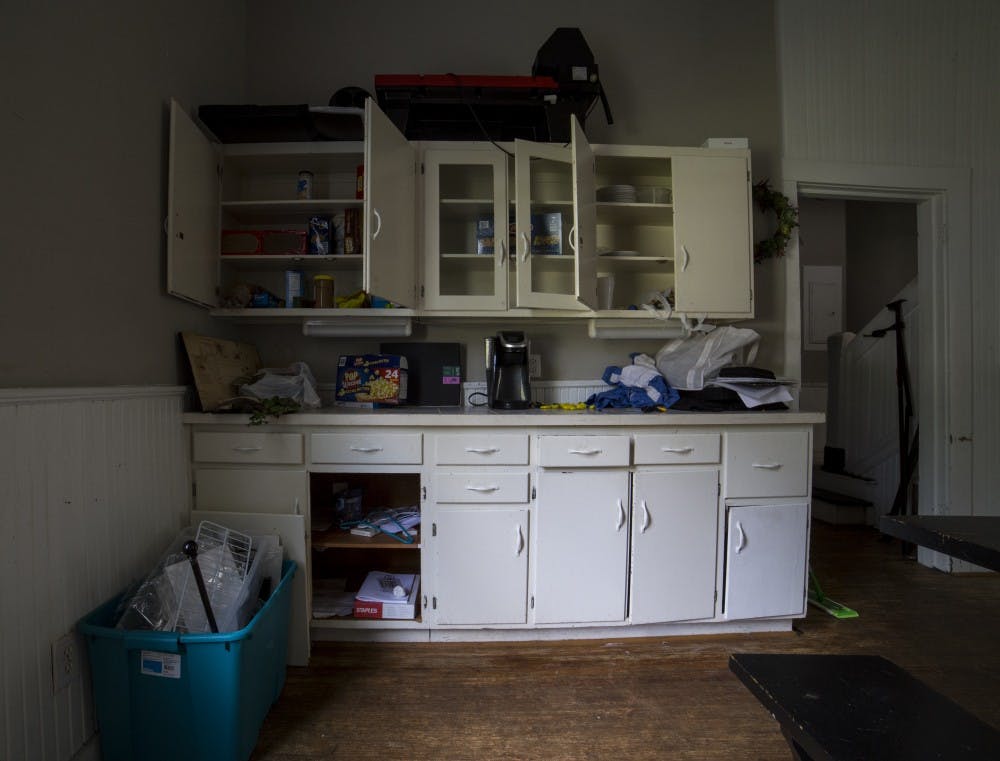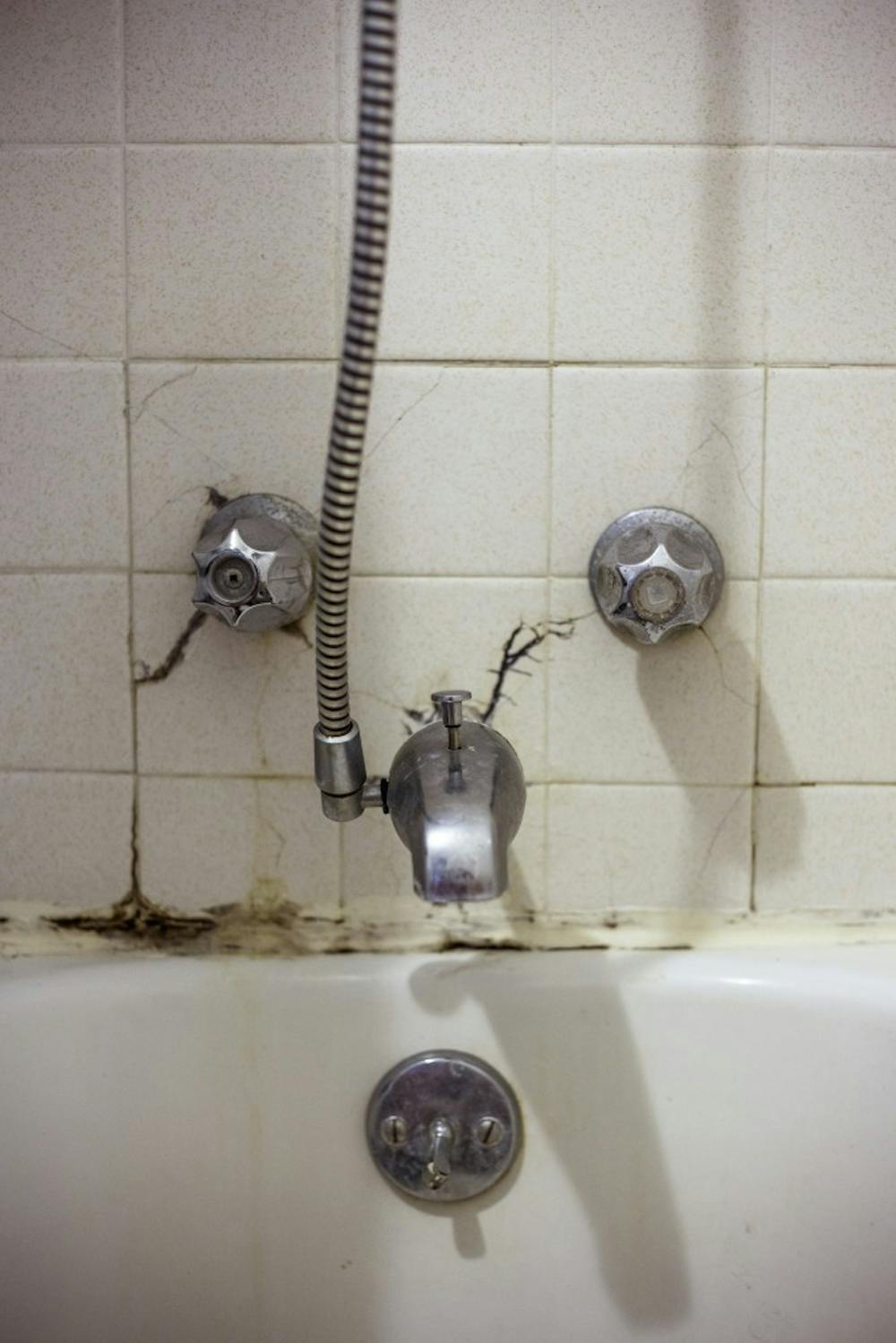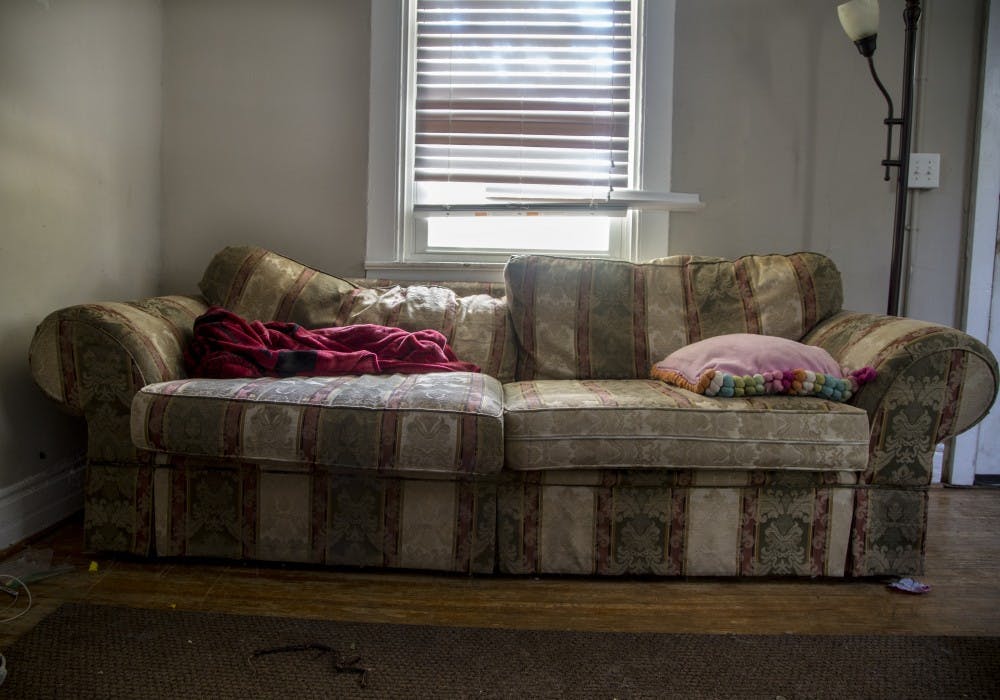It’s the start of the new school year. Excitement buzzes in dorms as students decorate their first home away from home, while upperclassmen stroll to their new classes with the confidence of experience and a fresh start. The anticipation of a new football season is high, and the bars in Five Points are crowded yet again. And as you sit on the Horseshoe to admire the changing leaves and count how many times students inevitably trip over improperly placed bricks, you may notice one thing: more and more students fill the streets.
Every year USC’s student body gets a little bit bigger. More and more freshmen are accepted annually, and it is required that they live on campus. This past year’s high-enrollment rate may have been unforeseen—as our number of basketball wins surmounted unexpectedly, so did the number of students signing on to being gamecocks—but these rates have been steadily increasing for years as USC has struggled to house everyone. The school simply lacks the infrastructure to house these ever-increasing numbers. And while USC has recently approved a $460 million plan for eight new residence halls, construction is still forthcoming.
What this means for the rest of the student body is that they must turn to off-campus housing, most commonly through apartment complexes and homes in nearby neighborhoods. New apartment buildings and management companies seem to be spreading across Columbia like wildfires, and the choices may be overwhelming for students seeking the best fit for their multi-faceted lives. For most students, this is their first time renting or purchasing, and it is hard to understand exactly what you agree to and what your rights are. However, one major common denominator that seems to thread many students' off-campus experiences together is the abuse of power and neglect of management.
Let’s take a look at some student’s less than pleasant experiences:
“My washing machine was falling out of the wall so I put in a maintenance order,” said Nick Proto, a third-year broadcast journalism student. “They came in, threw some duct tape on it, said they’d come back the next day to fix it, and never came back.”
“I moved off campus as a necessity because I was not approved for on-campus housing as a sophomore. One day while I was in class I got a text from my roommate saying that she thought someone broke into our room. She found our door unlocked and many scuff marks throughout the living room with no explanation or warning. I got back and checked out my room. To my surprise and horror my bathroom was wrecked,” third-year French and economics student Hannah Wilczewski said. “The toilet was missing, the walls were damaged/stripped, there was wall paste everywhere, tools, scuff marks, and all my personal items were thrown on my bed. We called to the main desk and the person who answered couldn’t find any record of the toilet removal and it took three different conversations with management for us to discover that the room below me experienced leaking every time I showered or used the toilet. I was without [a] toilet for three days and they returned the toilet with less notice than when they took it in the first place.”

For one USC student, her uncertainty on the process of leasing an apartment made her a target.
“So basically, freshman year you’re kind of pressured into finding an apartment, so we decided on [an apartment], and when we were signing they did an online application process. You had to apply, and once they approved your application, then you could live there. But it was very unclear whether that was us signing a lease—to our knowledge we would get an application and then we would move forward from there. So our application would get confirmed, and then we would get to go in and sign a lease and all that good stuff,” she explained. “But basically how it ended up working out was, once you applied, and you were accepted, that was basically you signing your lease online. It was all really confusing, and the only reason we really realized that was because we had signed up for a three person apartment, and then, last minute we needed to switch to a four person apartment…I had to go in and basically break my three person lease and sign to a four person lease, although I had never really signed a lease, to my knowledge. And it was all very confusing, especially being your freshman year in college.”
As if this wasn’t enough, this same student was again a victim of uncertain circumstances at the same apartment complex. One long weekend, her floors were being redone, and when she returned to her apartment for the first time on Monday, she noticed that something was a little off.
“They came in and redid the floors, and they moved a bunch of my stuff in the laundry room…into this bigger bedroom that my roommate had vacated, and they put it all on there. So I came home that Monday and I was rushing and I ran inside and the floors were done. And I kind of glanced in the room and I saw all my stuff in there, and I thought, ‘that’s really weird that they would move all of my stuff and not put it back. But that’s okay whatever, I’ll just put my stuff back when I come home,’” she explained.
But when she came home about two hours later, her apartment was not in the condition that she left it.
“I walked up to my apartment door, and the door was ajar. So I walked in, and it was really weird and I said, ‘hello?’ because I figured maybe a maintenance worker was in there. They told us they would be coming in and out, and so I go into the apartment and I’m kind of looking around, and I checked the spare bedroom where all of my stuff had been in previously, and it was all gone,” she said. “All of my clothes that had been drying on the drying rack, all of my stuff that they had moved in there was completely cleared out. I probably lost around 200-300 dollars’ worth of clothes, and I had no idea who had been in my apartment.”

She tried to seek help or an explanation from management, but to no avail.
“I immediately went to the leasing office and told them everything…and they were like ‘oh, well no one should have touched your stuff.’…I called them, I emailed them, and for a while they were cooperative, and then, after a while, they stopped emailing me back, they stopped calling me back. I would go over there and try to talk to them, and they would always be like ‘oh, it’s not a good time, the property manager’s busy.’ And they completely disregarded everything we said to them, and at one point they just stopped replying to us…and I couldn’t really do anything because I didn’t really have any evidence of it,” she said.
While it is true that she has no proof that this incident was directly caused by the management and maintenance staff, she knows for sure that she left her apartment locked, so it is very unlikely that it was a third party who entered. And because items that were of more value in her apartment were not stolen, such as a TV or computer, it is more likely that a maintenance worker would have either accidentally or intentionally stolen the items that they moved into the first place, as opposed to a random act of thievery. Either way, the student was left with no explanation, compensation or closure.
Although there is strength in numbers, this large population of USC students seems to lack a good bit of say in their quality of housing. Rent increases drastically every year, and while many of the apartment complexes masquerade as luxury living, they often lack the basic maintenance and upkeep to even comply within minimum living standards. And since many of us are dealing with leases, rent and management companies for the first time, we don’t know where to turn for help or how to affect change.
However, there are a few of the littler known services offered on campus who are here to encourage you to know your rights and hold your landlords up to that standard.
Off Campus Student Services, located in the basement of the Russell House West Wing, provides all students with the resource and advisement needed for any transition or tough period in your off-campus housing experience.
“It’s so important that we have students that help empower students to take control of your living situation off campus,” said Dave Foster, associate director of Off Campus Student Services (OCSS). “You know, it’s not always going to be the best situation, but the university provides so many services, not only with off campus students, but the university provides so many services for students that I think are underutilized.”
And underutilized they often are. Another program provided by USC is Student Legal Services (SLS), which offers free legal advisement and representation for all students, already included in your tuition. The services they offer could be anything from helping students draft a letter to their property manager, to providing full representation for the students if it comes to extremes. OCSS can also help you assess whether or not you need to take the issue to SLS. According to Janie Kerzan, interim director of OCSS, on average, their offices refer students to seek help from SLS approximately once a week, although not all of these students may end up needing legal help.
“They see a lot of landlord-tenant types of cases and help students navigate motivating their landlord or property manager to do certain things or helping students better understand what they signed in their lease that might be a little different than what they were under the impression that they signed,” Kerzan said.
Most importantly of all, though, when it comes to property management issues, Kerzan emphasizes documentation.
“Day one, photos are your friend and if something’s not right? Photos need to be taken, it needs to be documented, landlords need to be made aware, and they legally have to address these things,” Kerzan said. “And I think sometimes students just end up being like, ‘oh, I guess this is what I get, oh well, I’ve got a lot of other things I’m worried about right now.’”
Ultimately, what it comes down to is being an informed resident and not being afraid to demand the rights that you are afforded. No change can be affected without baby steps to set it in motion, so know your rights and don’t be afraid to take the first step. And since you’re off campus, maybe you won’t trip on any bricks this time.



